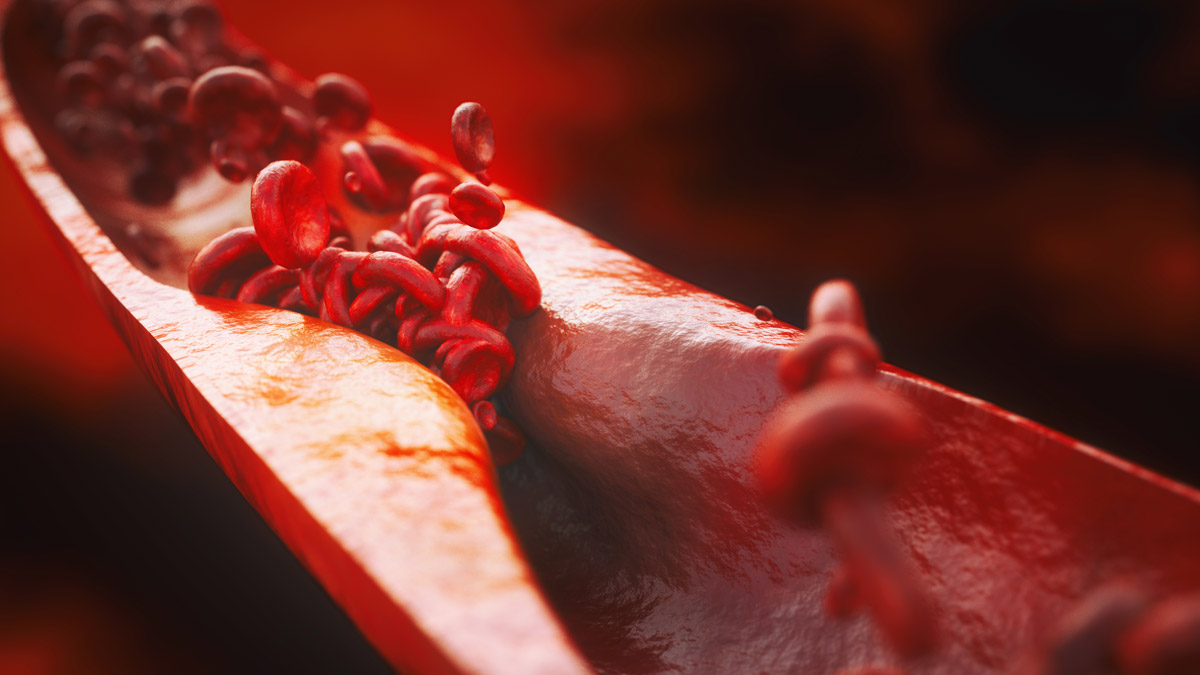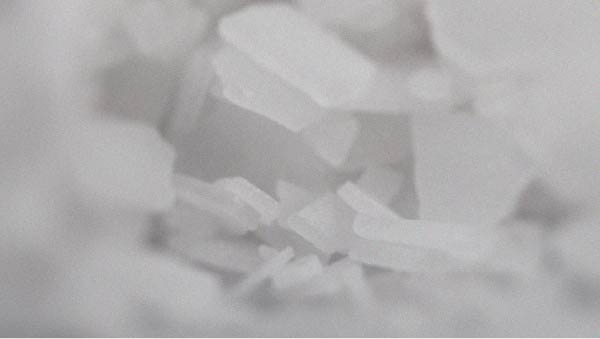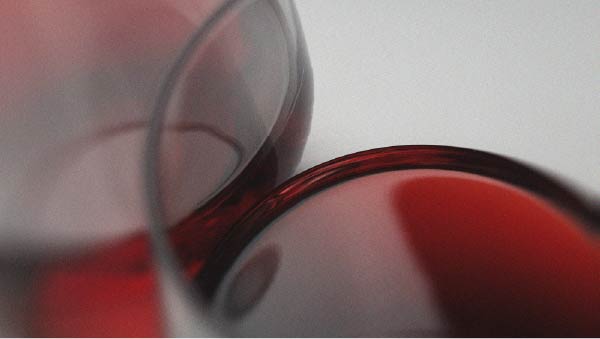Three effective ways of reducing your risk of stroke
Stroke does not tend to be a chance occurrence: studies show that simple dietary measures can lower the risk by 80%.

If someone close to you has already had a stroke then you’ll know that it’s probably one of the worst things that can happen to you in life. Only 1 in 10 people make a full physical and mental recovery while the remainder suffer disabling effects and almost 40% die in the months that follow.
What’s worse is there are no early warning signs of the momentous event to come. It’s brutal and unpredictable. One day, a fatty plaque becomes detached from a blood vessel wall and gets quietly carried along in the bloodstream until it finally becomes stuck in a narrowed artery. That’s the moment everything gets turned upside down: the plaque’s obstruction of the vessel abruptly interrupts the blood supply with the result that thousands of nerve cells, which literally depend on this artery to survive, are deprived of oxygen.
If nothing is done in the hours that follow, the nerve cells die of asphyxia, eliminating a large part of the neuronal circuits responsible for complex functions such as tactile sensitivity, speech, balance … If the damage is not too great and the victim is still young, neuronal plasticity enables these circuits to be rebuilt, though it does take time. If not, which is more often the case, nothing is ever the same again.
The consequences of a stroke are truly frightening and it’s hardly surprising that most people don’t want to hear about them: they secretly hope that they’ll slip through the net. But by refusing to face reality, they put themselves at an unnecessarily increased risk. Stroke does not tend to be a chance occurrence: studies show that simple dietary measures can lower the risk by 80%.
Three dietary factors that reduce the risk
So if we know that there are a number of determinants which increase the likelihood of having a stroke such as physical inactivity, hypertension and type 2 diabetes, are there any factors which have the opposite, ie, positive, effect on risk?
There are at least three such factors which can be easily incorporated into your life and which also offer major benefits for many other diseases. A group of scientists reviewed almost 400 studies published over the last 30 years in order to ascertain the kind of diet that can best help prevent stroke (4). It seems there are three main steps which can help cut the risk of stroke by at least 80%.
Increasing potassium intake
This is without doubt the best way of reducing the risk of stroke. In 2017, this group of researchers from Birmingham University showed for the first time that low potassium intake promoted rigidity of arteries but that increasing its intake helped prevent the calcification process (5). Though potassium is found in almost all fruits and vegetables, the sharp decline in consumption of these foods has undoubtedly contributed to the huge rise in incidence of stroke … While requirements for potassium are estimated at 4700mg a day, it’s thought that actual intake in Western societies may barely reach 2300mg in women and 3100mg in men (6).
Foods rich in potassium: all fruits, vegetables and pulses, particularly white beans, pumpkin, spinach and bananas.
Potassium supplements: Potassium Bicarbonate (officially recognized for optimising and maintaining normal blood pressure)
A high magnesium diet
The second observation made by the researchers conducting the meta-analysis was that people with a high magnesium intake had a lower risk of stroke. The body needs this mineral to function properly. It is vital for cardiac function: it plays a direct role in the metabolism of fats and helps regulate blood pressure, two mechanisms involved in stroke. It is magnesium’s dilating effect on blood vessels which is probably its key benefit in reducing the risk of stroke.
Foods rich in magnesium: in general, pulses, seeds and nuts, and in particular, soya beans, almonds, spinach and chocolate.
Magnesium supplements: Magnesium Orotate (which contains eight different forms of magnesium) to be taken with food.
Vitamin B9 supplements
A more recent meta-analysis that looked specifically at stroke and cardiovascular problems showed that supplements of vitamin B9 (also called folate) reduce the risk of stroke by between 20% and 70%. This is hardly surprising: vitamin B9 (folate) supplements such as SuperFolate are already officially recognized for optimising and forming blood cells (8). Vitamin B9 is also found in meat and vegetables but levels are significantly depleted by cooking, storing and freezing.
References
- Sacco RL, Wolf PA, Gorelick PB. Risk factors and their management for stroke prevention: outlook for 1999 and beyond. Neurology 1999; 53 : S15–24.
- Ding EL, Mozaffarian D. Optimal dietary habits for the prevention of stroke. Semin Neurol. 2006 Feb;26(1):11-23. Review.
- Yong Sun, Chang Hyun Byon, Youfeng Yang, Wayne E. Bradley, Louis J. Dell’Italia, Paul W. Sanders, Anupam Agarwal, Hui Wu, Yabing Chen. Dietary potassium regulates vascular calcification and arterial stiffness. JCI Insight, 2017; 2 (19) DOI: 10.1172/jci.insight.94920
- Hajjar IM, Grim CE, et al. Impact of diet on blood pressure and age-related changes in blood pressure in the US population: analysis of NHANES III. Arch Intern Med. 2001;161(4):589-593.
- EFSA Opinion 2010;8(2):1469
- Sabatier M., Arnaud M.J., Kastenmayer P., Rytz A., Barclay D.V. Meal effect on magnesium bioavailability from mineral water in healthy women. Am. J. Clin. Nutr. 2002;75:65–71.
- Tian, T., Yang, K.-Q., Cui, J.-G., Zhou, L.-L., & Zhou, X.-L. (2017). Folic Acid Supplementation for Stroke Prevention in Patients With Cardiovascular Disease. The American Journal of the Medical Sciences, 354(4), 379–387. doi:10.1016/j.amjms.2017.05.020
Keywords
3 Days
Order was shipped on time and packaged…Wonderful Jobs!
Order was shipped on time and packaged excellently.
DMHoge
9 Days
great products and prices
great products and prices
Marie
15 Days
Easy to navigate site
Easy to navigate site, had what I was searching for, good price. easy order-check out
James Tucker
21 Days
My skin is clearing up nicely!
Pretty good for my skin so far.
Christian
23 Days
The new packaging is excellent
The new packaging is excellent - finally! No more squashed boxes and torn envelopes.
GORAN
24 Days
Great Product
Great Product
Larry Garrett
28 Days
Quick shipping
Quick shipping; good price. No issues!
Mary McCarty
30 Days
Thr product is very good and is helping…
Thr product is very good and is helping me on my health. Then is always on time
LUGO Luz
32 Days
Buying was fine
Buying was fine. I had problems with the website not recognizing my login info, and had to call to get it fixed. Other than that, everything was good.
David S. Clark
33 Days
Your super maca and super ginseng are…phenomenal
Your super maca and super ginseng are phenomenal supplements that compliment each other when taking them together. Fantastic feeling of well-being and lots of mid day energy without the crash.
Keith Mason
35 Days
I have had amazing results with every…
I have had amazing results with every supplement I've purchased. I am extremely satisfied with this company
kirstin Torres
35 Days
Fine products
Fine products . They are on the leading edge of online supplements. The only issue -so far-is they sometime run out of subscription items.
Jason Argos
38 Days
The ordering process is very user…
The ordering process is very user friendly and the products always come in a timely manner.
CARTER Rhonda
39 Days
The price for Dr
The price for Dr. Pero's AC-11 is reasonable and in line with his views. (my former colleague). Keep it pure.
CAMPBELL Clayton
42 Days
Right on every time.
Right on every time.
Arthur Nicholas




